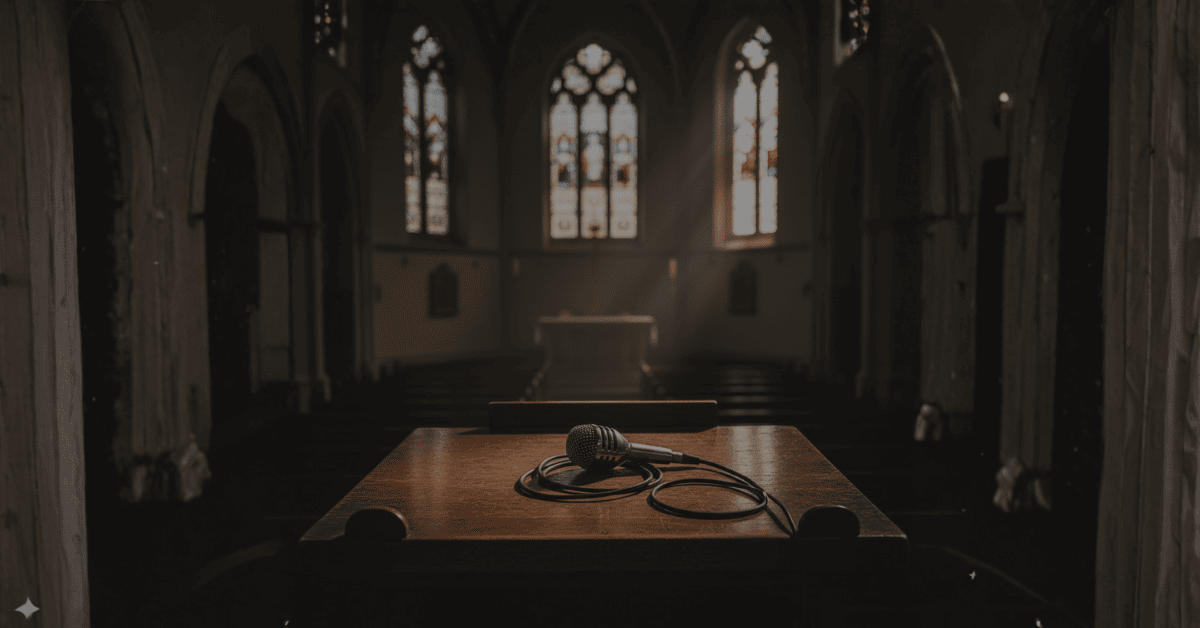They Told You It Was ‘Biblical Discipline’ — But It Was Abuse
They said it was love. Correction. God’s will.
You were told it was for your own good — that obedience had to be taught, even if it hurt.
But now you’re older. Maybe you’ve had children of your own. Maybe the memories creep in when you least expect them. A belt snap. A verse quoted through gritted teeth. And you’re left wondering: Was that discipline? Or was I abused?
If you grew up in a Southern Baptist home or church in Arkansas — where “biblical discipline” was more than a buzzword — you’re not alone. And you’re not imagining things.
➤ Southern Baptist Church abuse happens more than most people want to admit.
It hides behind stained glass windows and Sunday school smiles. It’s in the sermon you can still hear years later — the one where they said a “strong hand” was God’s design. But when a child is crying, trembling, bleeding — that’s not discipline. That’s damage.
What Is ‘Biblical Discipline’ — and Who Gets to Define It?
Southern Baptist churches often preach that discipline is a form of love — that God commands parents to correct their children firmly, even harshly.
They point to Proverbs: “He who spares the rod hates his son.” And that’s where many survivors first lost their safety.
In theory, biblical discipline is about guiding children. But in practice, it often becomes a tool of control, fear, and silence.
Some pastors teach that disobedience is sin — and that sin must be punished, swiftly and severely. A child becomes a battleground for righteousness. Love becomes conditional. Pain becomes the price of being “right with God.”
And who gets to decide when a punishment has gone too far?
Too often, it’s the very person wielding the belt. Or paddle. Or scripture.
There’s rarely oversight. Rarely accountability. And when there’s no one watching, power doesn’t just corrupt — it devours.
When Discipline Crosses the Line Into Abuse
Were you spanked until you couldn’t sit?
Forced to kneel on rice or hold your arms out for minutes until they shook?
Locked in closets? Shamed from the pulpit? Threatened with hellfire?
None of that is “discipline.” It’s control. It’s manipulation. It’s trauma passed off as righteousness.
You may have heard lines like:
- “This hurts me more than it hurts you.”
- “You’re a rebellious child.”
- “God says I must correct you.”
- “If I don’t do this, you’ll go to hell.”
What they really meant was: You must obey, no matter how much it hurts — or else.
Some children were beaten with switches cut fresh from the tree. Some were struck until their skin blistered. Some were screamed at, told they were evil — not just wrong, but wicked. And when the punishment was over? Silence. No comfort. No apology. Just a verse — and sometimes, something even more violating.
In some Southern Baptist churches, it wasn’t just parents using “biblical discipline” as a weapon. Pastors, youth leaders, and church elders sometimes took part in the punishment — or used it to groom children for something worse.
Survivors have reported being spanked behind closed doors by trusted church leaders, only to realize years later that the “correction” was about control, not care. What was framed as discipline often carried a disturbing undertone — humiliation, domination, and forced submission.
In some cases, discipline became a gateway — breaking a child’s will, isolating them, and making them more vulnerable to sexual abuse by the same person or someone else in the church. And when the abuse happened, the child had already been trained to stay silent — to believe it was their fault, or God’s will.
Investigations like the Houston Chronicle’s Abuse of Faith series have documented how pastors used spiritual authority, scripture, and so-called “discipline” to control and exploit children across Southern Baptist communities for decades.
Was I Abused or Disciplined in Church?
Let’s stop right here.
If you’re still asking this question, let’s answer it clearly:
- If you were afraid of your parent or pastor, not just of consequences, but of them — that’s abuse.
- If pain was used as the primary teacher, not conversation or love or boundaries — that’s abuse.
- If you were taught that you were “bad” instead of learning how to do better — that’s abuse.
- If your cries were ignored or mocked — that’s abuse.
Spiritual abuse doesn’t always look like bruises. It looks like guilt that never leaves. Like panic attacks during sermons. Like believing you are fundamentally broken because of how someone “disciplined” you in God’s name.
➤ Southern Baptist abuse cases are different because there’s often no hierarchy, no archdiocese, no official records. Just one church. One family. One community — all circling the wagons.
You’re Not Crazy — You’re a Survivor
You may have spent years asking yourself, “Was I just a bad kid?”
Or worse, “Did I deserve it?”
That’s how deep this kind of religious trauma runs.
When abuse is wrapped in scripture, survivors don’t just lose their childhoods — they lose their ability to trust their own memories.
Some survivors describe “checking out” during beatings. Others recall the cold silence afterward — no apology, just a smug assurance that they were now “clean in God’s eyes.”
One woman remembers being dragged down the church hallway by her arm at age six for “talking back” during choir practice — spanked in front of the youth pastor. No one said a word. Everyone acted like it was normal.
That’s the cruelty of it: It was treated like normal.
And maybe that’s what kept you silent for so long.
Because if everyone around you called it “discipline,” who were you to say otherwise?
But you’re not crazy.
You were groomed to accept pain as love, silence as obedience, and fear as faith.
Now you’re waking up — and that’s brave.
Why Legal Action Matters — Even Years Later
If you’re realizing that what happened to you wasn’t just strict parenting — but abuse disguised as religious discipline — you can take legal action.
Arkansas law allows certain exceptions and extensions when abuse survivors come forward, especially in cases involving childhood trauma and institutional cover-ups. While every case is different, some survivors may still be within the time window to file lawsuits or open investigations — especially if new evidence comes to light.
Even if criminal charges can’t be brought due to time limits, civil lawsuits can still hold churches, leaders, and individuals accountable — for what they did, and for what they allowed.
Can Church Discipline Be Considered Abuse?
Yes.
Absolutely yes.
Just because it happened in a church doesn’t make it righteous.
Just because the person quoting scripture had a title doesn’t mean they had God’s authority.
The law doesn’t stop at the chapel doors — and neither does justice.
That’s why more survivors are coming forward. And why lawyers in Arkansas are beginning to understand the specific complexity of church-based abuse cases.
You don’t have to “forgive and forget.”
You don’t have to wait for a revival to name what happened to you.
You just have to know: You have rights. You have time. And you have options.
➤ One survivor recently took that step — filing a lawsuit against Central Baptist Church in Magnolia. Her courage cracked open a door that had been sealed shut for years.
Support for Survivors of Biblical Discipline Abuse
Survivors need more than legal help — they need validation, support, and space to heal.
That might mean:
- Speaking to a trauma-informed therapist
- Joining a survivor support group (faith-based or secular)
- Reclaiming your spiritual life in your own way
- Writing down your story, even if no one reads it yet
- Saying, maybe for the first time: That was abuse. I didn’t deserve it.
Arkansas is home to advocates, attorneys, and counselors who are beginning to listen — not just to the facts, but to the faith you were raised in, and how it was used against you.
You don’t have to reject your entire upbringing to acknowledge the harm.
You don’t have to throw out your faith to speak your truth.
You can hold on to what was good, and still confront what was evil.
Healing doesn’t mean having all the answers. It starts with being willing to ask the questions.
You Get to Name It Now
Maybe they called it love. Maybe they said it was God’s will.
But you lived it. You remember the fear in your gut, the tears you tried to hide, the way your body tensed when you heard their footsteps.
That was abuse.
You don’t need a church’s permission to say it.
You don’t need a Bible verse to prove it.
You don’t need anyone to agree before you begin healing.
You get to name it now.
You get to decide what happens next.
And if you’re ready, your voice might be the one that helps someone else finally breathe — for the first time in years.



